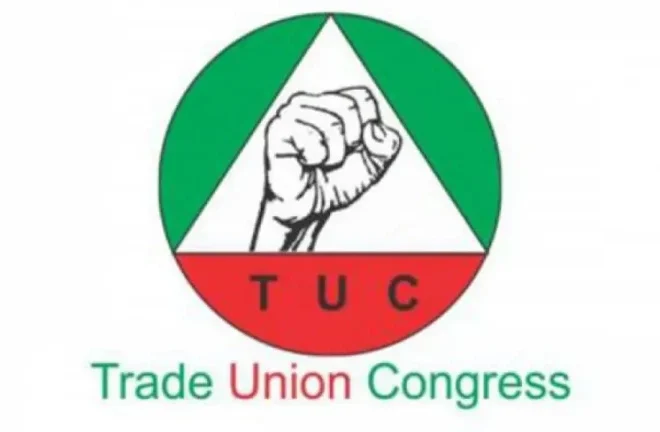Bayelsa, Delta and Edo States Give Their Palliatives Distribution Patterns.

Edo, Delta, Bayelsa govts. outline palliative distribution strategies
Saheed Busari Send an email4 hours ago
0 13 4 minutes read

Edo, Delta, and Bayelsa Governments have expressed their different palliative distribution strategies to lessen the impacts of the current harsh economy on their citizens.
The state governments disclosed their plans while responding to the citizens’ call for intervention in a survey across the three states by the News Agency of Nigeria (NAN) on Wednesday.
NAN reports that the distribution of palliatives had recently become the focus of state governments and organisations, following the hard times occasioned by the removal of petrol subsidy and the unification of exchange rates.
NAN recalls that on March 22, the Federal Medical Centre, Keffi, had confirmed the death of two students while rushing to get bags of rice distributed by the Nasarawa State Government.
Besides the death of the two students of Nasarawa State University, Keffi, the hospital also confirmed it received 14 others with different degrees of injuries from the incident.
The Vice-Chancellor, Nasarawa State University, Keffi, Prof. Suleiman Bala-Mohammed, while attributing the stampede to impatience on the part of the students, promised further investigation into the matter.
In a similar incident on March 24, the police in Bauchi State confirmed the death of four persons in a stampede during the distribution of alms by a philanthropist in Bauchi metropolis.
Spokesperson of the police command, SP Ahmed Wakil, said the incident occurred when hundreds of people gathered to collect alms from the said philanthropist.
The police, thereafter, said the death toll from the stampede had risen to seven as at March 25.
Against this backdrop, the Edo government says it is doing things differently to ensure lives meant to benefit from the palliatives do not end up dead during the process of distribution.
The state Commissioner for Communication and Orientation, Mr Chris Nehikhare, told NAN that the state operates its ‘Operation Feed the Hungry Initiative’ via places of worship.
Nehikhare said the distribution of palliatives to the people through places of worship was to avoid stampedes as recorded in Nasarawa and Bauchi states.
“This method of palliative distribution, using churches and mosques, is the best.
“It’s just like the Edobest Education System that so many states have come to understudy and adopt,” he said.
According to him, the model does not encourage stampedes because it takes into consideration the closeness between the poor and the vulnerable and their various churches and mosques.
“When people are poor and hungry, they feel more comfortable to go to their places of worship, either the church or the mosque.
“You will also agree that these places of worship do not discriminate. It does not matter the political party one belongs to; everyone is treated equally.
“So, this is what this model is based on,” he said.
The commissioner disclosed that the model supported the buying of the food within the locality where it would be distributed without involving contractors.
He said: “The only role the government plays in the model is to provide funds and monitor the process.”
According to him, some Non-Governmental Organisations (NGOs) usually donate food to widows, the poor, and the vulnerable, going through churches and mosques.
“It is a model where, even though government is funding it, it (government) has removed its hands completely from the distribution process.
“Government will only carry out a routine monitoring to access the outcome and its impact.
“So, I recommend this model to other states. I’m sure that with time, when people begin to see the effectiveness and the impact of this model, other states will adopt it,” he added.
Meanwhile in Delta, as residents lament not receiving palliatives from the government, Speaker of the State House of Assembly, Mr Dennis Guwor, said the legislators were not mandated to give such to their constituents.
The speaker made the disclosure when members of the Western Chapter of the Ijaw National Congress visited him in his office.
Though Guwor noted he was not against giving palliatives, he explained that members of the assembly had, in their different ways, empowered their constituents.
According to him, members of the assembly can reach out to their constituents during Easter and Christmas celebrations as well as any other time as the need arises.
Corroborating the people’s cry in Delta, Director of the State Emergency Management Agency (SEMA), Mr Karo Ovemeso, confirmed that the state government had yet to embark on any distribution of palliatives to residents.
He, however, said: “That we are not giving palliatives for now does not mean we have not been giving relief materials to victims and communities that are challenged.”
The residents of Bayelsa have a similar story to share, as they said they too had yet to receive any form of palliatives from their state government.
A resident, Mr Moses Edefe, lamenting how he and his family could barely feed, alleged that the state government had not shown concern for the people’s sufferings.
According to him, the state government has never been proactive in terms of the welfare of the people.
“They shared rice during the 2023 November governorship election but only to their party members, a Federal Government palliative for that matter.
“It was a very wrong thing to do, not considering the poor people in the society.
“I don’t know why the Bayelsa government keeps neglecting the people.
“Even the N35,000 wage palliative has not been paid, not even for a month, to any Bayelsa worker; it’s very bad.
“I call on the Bayelsa government to do the needful, as the people are suffering. Let them have a rethink,” he said.
Another resident, Mr Solomon Edums, who recalled the loss of lives in the past few days while struggling to secure palliatives, called for caution.
However, in a subtle reaction to the people’s allegations, Gov. Douye Diri of Bayelsa, at Easter, said the provision of palliatives was not a lasting solution to the economic hardship in the country.
He said his administration was initiating policies and programmes that would bring about long-term empowerment to people of the state rather than short-term palliatives.
The governor, who explained that the government could not alone provide for everyone, called on the people to get involved. NAN

